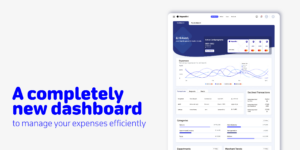Accurate financial data is essential for businesses to make informed decisions and operate efficiently. However, a recent report titled “Mistrust in the Numbers” by BlackLine found that 69% of respondents think that they/ their CEO/their CFO has made a significant business decision based on out of date or incorrect financial data. This blog explores the risks of inaccurate financial data and how automation in expense management can help businesses improve data accuracy, compliance, and efficiency.

The Risks of Inaccurate Financial Data
- Inaccurate financial data can lead to poor decision-making. When businesses make decisions based on inaccurate data, they may miss out on opportunities, make costly mistakes, or even violate regulations. Still, the BlackLine report shows that 41% of respondents claim they have implemented technology to mitigate the risk of inaccuracy.
- Inaccurate financial data can damage a business’s reputation. When stakeholders see that a business cannot manage its finances accurately, they may lose confidence in the company and its ability to deliver on its promises. You may be able to recover from financial loss, but if the company’s reputation is jeopardized due to poor data handling, the chances are lower. In the report, 96% of C-suite respondents agreed that there would be some form of negative impact if inaccuracies in financial data were not identified prior to reporting.
- Inaccurate financial data can expose a business to compliance risks. Many regulations require businesses to maintain accurate financial records. If a business is found to have inaccurate financial data, it may be subject to fines or penalties. For example, the Sarbanes-Oxley Act of 2002 requires public companies to maintain accurate financial records and to have internal controls in place to prevent fraud. Further, 32% of the Blackline’s survey respondents recognized that they would fall foul of regulators, leading to possible fines and jail time.
How Automation Can Improve Financial Data Accuracy
- Automation can help to reduce human error. Manual expense reporting is a time-consuming and error-prone process. By automating expense reporting, businesses can reduce the risk of human error and improve the accuracy of their financial data. For example, a study by the Association for Financial Professionals found that companies that use expense management software experience 50% fewer expense report errors.
- Automation can help to improve data standardization. When businesses use different systems and processes to track expenses, it can be difficult to keep track of data and ensure that it is accurate. Automation can help to standardize data collection and reporting, making it easier to identify and correct errors.
- Automation can help to improve data visibility. When businesses have real-time visibility into their financial data, they can quickly identify and address any problems. This can help to prevent small errors from becoming big problems down the road. In the report by Blackline, over half (55%) of respondents are not completely confident they can identify financial errors before reporting results. Automation can change that.
The convergence of accurate financial data and automation in expense management can offer businesses a number of significant benefits. By leveraging automation tools, businesses can improve data accuracy, ensure regulatory compliance, streamline operations, and improve stakeholder trust. With the burden of manual tasks lifted, finance teams can focus on value-added activities and strategic decision-making. Embracing automation in expense management is an investment in efficiency, accuracy, and growth.





